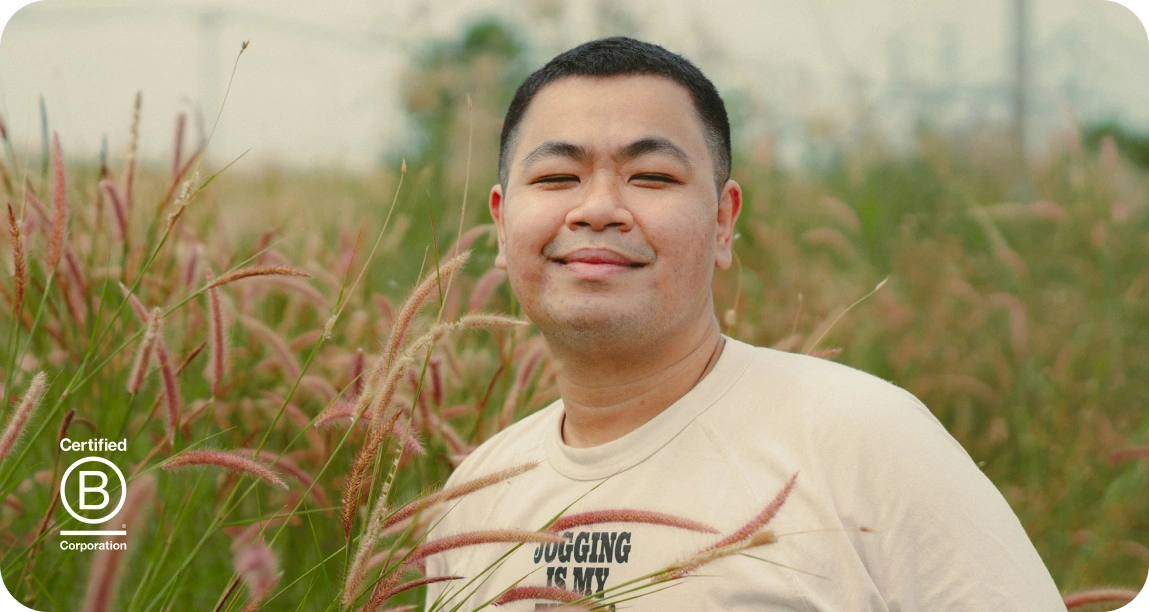A free training program for training CS reps with the skills, tools, and knowledge to delight customers and resolve issues.
Food waste is a serious matter, according to UNEP's latest research "estimates suggest that 8-10% of global greenhouse gas emissions are associated with food that is not consumed".
That's why Saasha Celestial-One together with Tessa Clarke decided to create OLIO. It's a free app connecting individuals within a community to share food and other household items so that the full value can be eaten or realized, and they don't go to waste.
https://youtu.be/3EjwadWp6c4
Saasha, how did it all started?
This is how it began: my co-founder and I six years ago, we were new moms, and we were looking to pivot into something that was more meaningful than our corporate careers. We were looking to start a business that could tackle an environmental challenge at scale. For this reason, we really did a big evaluation of the market globally looking for an opportunity. When we were looking, my co-founder, Tessa, had personal experience moving house. She had non-perishable food that she thought she could take with her in her packing boxes. But the removal man said "Absolutely not. You can't pack any food!"
Hence, she went out on the street in the middle of winter and tried to find someone to give the food to, and she couldn't. In the end, she ended up smuggling the food into her packing box. When she told me that story, we both saw that that was just totally senseless. Obviously, there was someone nearby who would have loved to have her food.
A mobile app is a simple and easy way to match people with too much with people who might want it. That was the genesis for OLIO!
What is the problem you're trying to solve with OLIO?
OLIO is tackling the massive problem of food waste. A third of all the world's food goes to waste: that's $1.2 trillion worth of food. Meanwhile, 800 billion people go to bed hungry. And specifically, we're focused on the environmental impact of food waste. If it were a country, it would be the third-largest contributor to climate prices after only China and the USA. What most people don't realize, is that half of all food waste takes place in our homes.
The vast majority of it is perfectly edible and fit for human consumption. We've just gotten lazy as a society, we let good food go to waste when it could be beneficial to a neighbor. With OLIO we try to make it simple, fast, and fun to share food rather than let it go to waste.
A Smarter Way to Build Your Global Team
What was your biggest challenge?
We launched across the UK in January 2016, just over five or six years ago. Effectively, OLIO is a marketplace where we're matching supply and demand for free food.
Like any marketplace, you need to get to sort of a minimum viable scale in order to have liquidity and provide that matchmaking service. For this reason, I guess our biggest challenges were getting to scale cost-effectively, which we solve through developing a grassroots volunteer program. We've got over 60,000 volunteers who are spreading the word about OLIO in their local communities all over the world and signing up their neighbors to the platform.
Then the other challenge is to try to affect mainstream consumer behavior change. That for many people is the journey of awareness of the problem, inspiration, and empowerment to fix the problem, recognition for a job well done.
Trying to get a lot of people to adopt a new behavior is notoriously hard, but the good news is now we're at just under 5 million people who signed up. We've seen 30 million portions of food successfully shared and redistributed on the platform, I guess the environmental equivalent of that is 80 million car miles off the road and 4 billion liters of water saved.
We certainly reached a critical mass here in the UK and have the beginnings of communities in Latin America, Singapore, a few other places that look very promising.
What is your best recommendation to any organization like yours willing to make an impact in the world?
I can't underestimate or overstate the importance of finding the right partner to work with the right co-founder.
My co-founder and I are incredibly close friends, and we were very thoughtful about the way we set up our partnership to make sure that we didn't, but our friendship at risk and also to set us both up for success. Clear role definitions.
We actually used a book called The Founder's Dilemmas, and we both read it and we sat down and we work through all of the different areas that it raised. That our considerations that a founding team, co-founders need to work through and decide equity, etc. And whilst our relationship has gone from strength to strength, I've seen so many other founders who were committed to a co-founder, and then ultimately they had to go to separate ways. I think that can be really damaging for the company and the culture and morale.
My advice would be to be very thoughtful and deliberate and considerate and to get a co-founder you need a co-founder.
I could not do this alone at all. Someone to hold you accountable, someone to go through the highs and lows... But it's as important as deciding potentially who you're going to marry.
What is the most important thing when you hire new team members?
The absolute most important thing is mission alignment or, as we often say, mission obsession. We're so committed and passionate about the problem that we're solving. This is an intense job. We're working together all the time and to enjoy it and bring your best. You're not going to be able to do that if you're not equally committed, so you can't train for mission alignment, you can train for skill alignment. And so we really do, first and foremost, look for people who you just want to get on this journey and take it all the way to the end.
That meant that we've had incredible retention and we have a really strong company culture because we're all united to put it into the scandal of food waste.
One last recommendation to fight food waste?
If anyone wants to get involved or just spread the word about OLIO in their local community or to find out more about the problems of food waste and why it's so important that we solve that our website is olioex.com so go ahead and have a look!
Work for Impact supports brands and organizations for a better world
If you want to learn more stories from startups in the impact space, check the series: Work for Impact Meets.
We believe in setting goals that benefit everyone, not just ourselves. By working with socially and environmentally responsible organizations and nonprofits, we want to promote projects that have a positive impact on the world as a whole. At Work for Impact, a job is not just a job. It is the beginning of a larger journey that will unlock future potential and provide meaningful opportunities worldwide. If youd like to know more about us and how we can make an impact together, lets meet for a quick chat.



